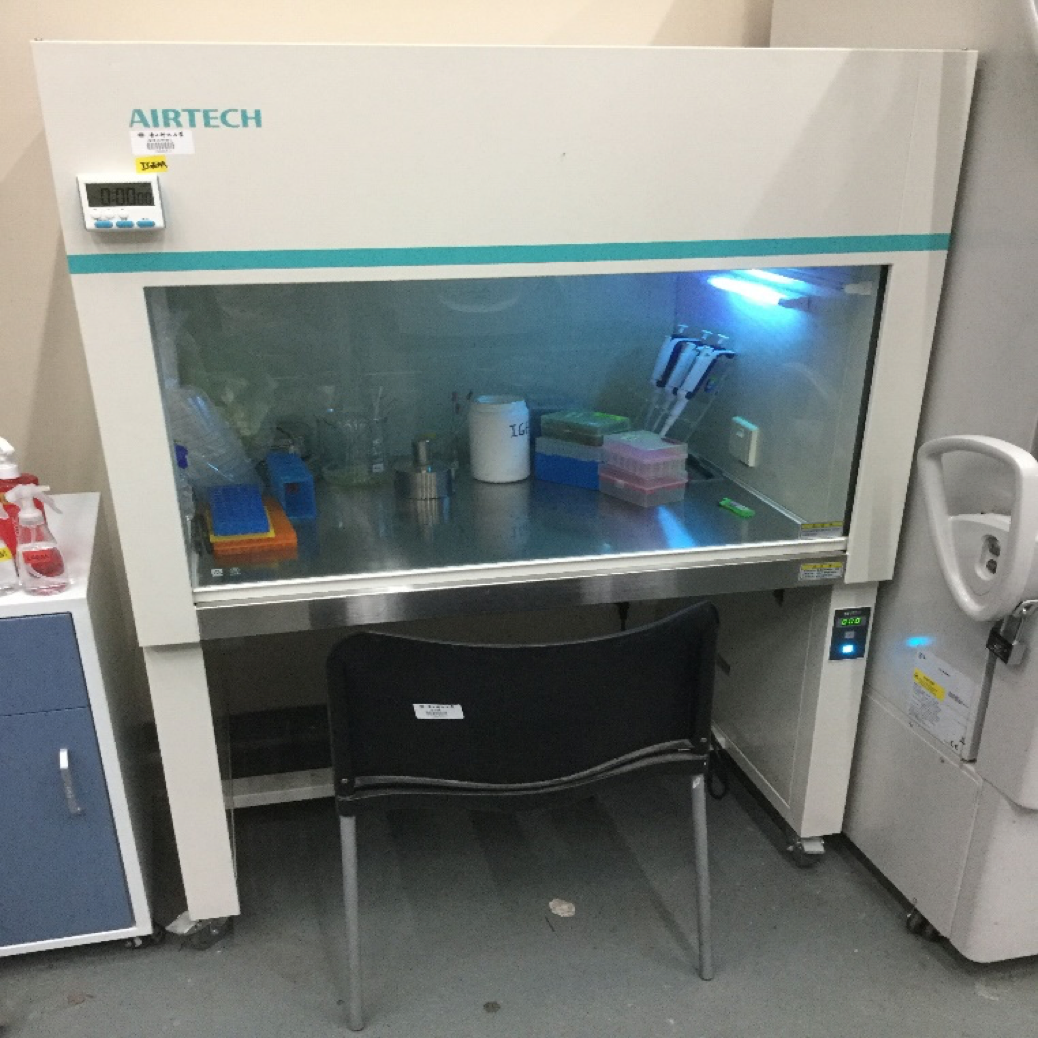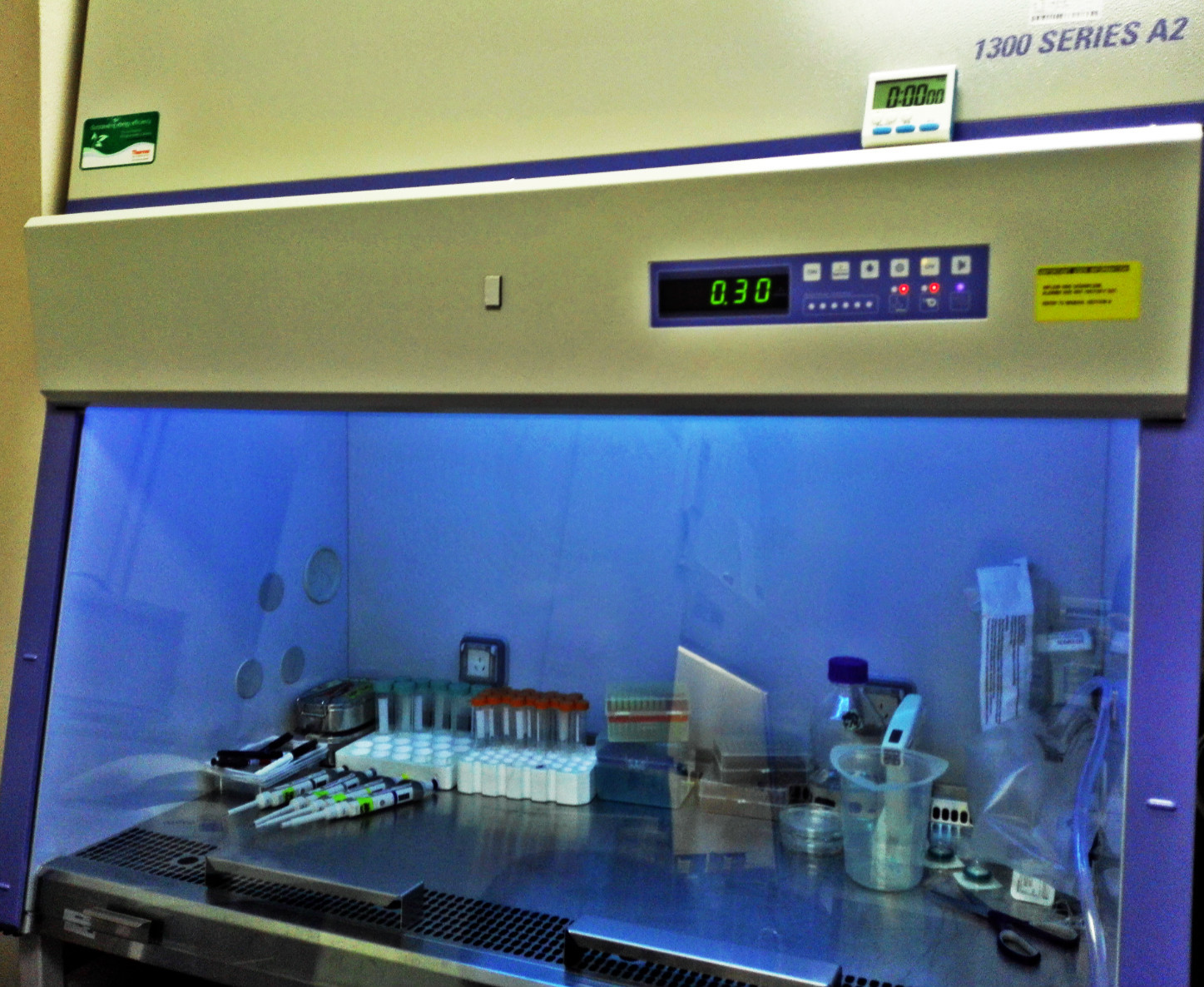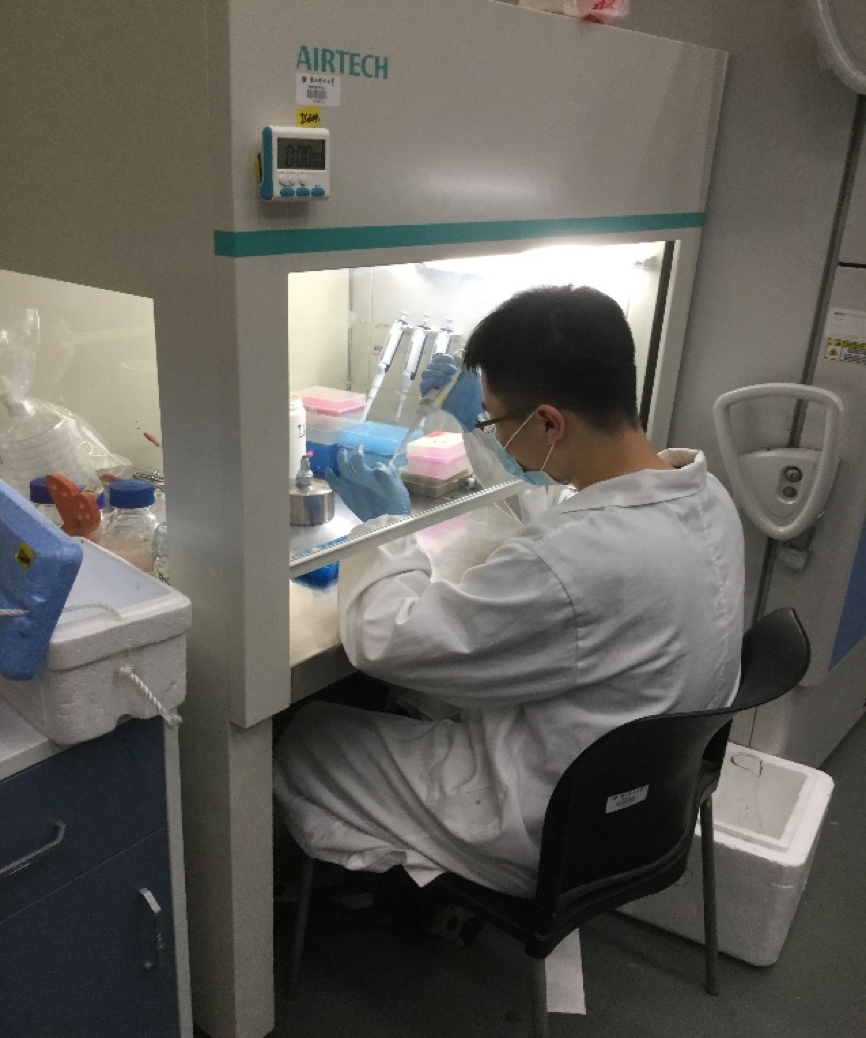
Safety
Teams
Safe Project Design
In Cearll’s Secret project, we used bacteria and mammalian cells.
Bacteria
The bacteria used in all experiments are classified as biosafety level 1 organisms. These cells are used for plasmid construction, transformed with circular plasmids and ligation production as well as Biobricks editing. To minimize the contamination risk in bacteria, we used only 2 types of antibiotics: Ampicillin for selection of plasmid construction and chloromycetin for Biobricks construction. As a result, the bacteria remain sensitive to other antibiotics. If bacteria from our experiments are accidently released, they most likely fail to proliferate competing with other naturally occurring and better adapted bacteria in the environment.
Moreover, we used competent bacteria in our experiments only as an amplification tool (DH5α) for our plasmids, with all of the transformation completed inside the clean bench (Fig. 1). The promoters we used are human promoters, thus not likely to translate and express in other bacteria. But even if the plasmids are transformed to other bacteria and translated, the proteins encoded in our plasmids are harmless, because the channels can only be activated in lab as natural sound and stress are much smaller than the threshold. We use well-established protocols under proper guidance and safety management. The criteria are same with what are required for biological research projects of all the labs in SUSTech.

Cells
The mammalian cell-line we use is cho-k1 cell, which is of biosafety level 2 organism according to NIH system. Since mammalian cells are very sensitive, they will not survive in case of accidental release. All the experiments related to cells are executed in biosafety cabinets and clean bench (Fig. 3). The cell culture and storage process are completed in sealed, UV periodically-disinfected cell rooms with strict control on personnel entering and leaving. The discarded cells are all killed by antiseptics and uniformly discarded. The safety measures we use (ethanol disinfection, UV disinfection, special lab-gown cleaning and sterilization of materials for experiments) are all satisfied with the policies on biological research projects of all the labs in SUSTech.
We used Lipo3000 ( ThermoFisher Lipofectamine®3000) to transfect the Endotoxin-free plasmids into the cells, which is proved to be harmless to human and environment[1]. We use the protocol as on the products specification and all transfections are completed in clean bench, which minimizes the possibility of contamination.

Safe Lab Work
All lab work and experiments were done according to laboratory safety policies at Southern University of Science and Technology. The lab team was trained and escorted by lab members and instructors of Prof. Huang lab for the entire time of our work to ensure thesafety and health of team members and lab workers alike.
Since not all team members had experience in genetic engineering lab before, all of our team members have passed lab safety exam in our school. Also, all lab work was done under the supervision of research assistants in lab.
There are three things which are most important during our experiment:
- Personal safety: all working in the lab was done with gloves, long pants, shoes and lab coats that are able to cover the surfaces of our body. No drinking or eating is allowed around the lab (Fig. 3).
- Keeping our benches clean and organized: working benches were cleaned and disinfected with ethanol each time before and after using. Wastes were separated to biologic wastes and regular wastes and uniformly handled by Biology Department through special companies.
- Notebook recording: all the experiment should be recorded in the notebook during the period.

Safe Shipment
We didn't face any special safety problems in sending our DNA parts.
References
- ↑ On ThermoFisher websites: http://corporate.thermofisher.com/en/responsibility.html

